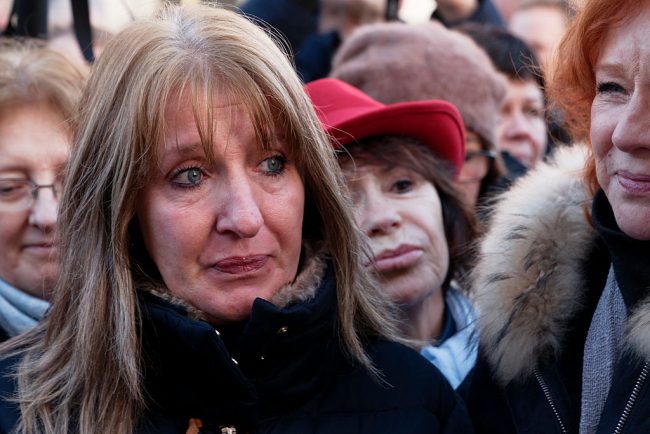French President Francois Hollande on Wednesday made a rare use of his presidential powers to pardon a woman who had been convicted in 2012 of the murder of her violent husband.

Jacqueline Sauvage had been sentenced to 10 years in jail for shooting dead the husband who had beaten her up for decades.
Her three daughters sought a presidential pardon, gathering over 380,000 signatures in an online petition.
READ MORE: White House explains why Obama can’t pardon ‘Making a Murderer’ subjects despite petition
“It is a long battle that has just ended … but our fight continues for all other women,” Sauvage’s lawyer Janine Bonaggiunta told BFM TV.
He confirmed that Sauvage had left prison, accompanied by one of her daughters.
Hollande had already granted Sauvage a sentence reduction in January.
READ MORE: Hollande waives prison for abused woman who shot husband
“The President of the Republic judged that the place of Madame Sauvage was no longer in prison, but beside her family,” his office said in a statement.
In 2013, Hollande also used his presidential prerogative to allow Philippe El Shennawy, then France’s longest-serving prisoner, to be freed on parole after 38 years in jail.
The French president has the power to reduce judicial penalties, but not to quash the underlying conviction. It was often used in the past to waive minor sanctions such as traffic fines en masse, but has since 2008 been applied only to individual cases.
Perhaps the most famous French presidential pardon was that accorded to the Jewish army officer Alfred Dreyfus in 1899, after his treason conviction stirred a huge public controversy. He was later cleared by an appeal court.



Comments